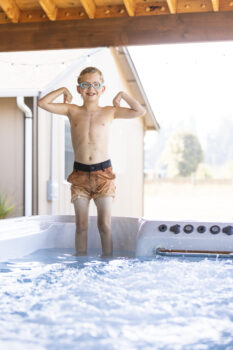
Like many 10-year-olds, Hudson Lewis loves to play video games, listen to music, swim and hang out with friends and family.
But unlike most kids his age, Hudson’s childhood has been filled with challenges no child should have to experience.
Hudson was born with a rare form of muscular dystrophy known to affect heart function but didn’t experience any cardiac affects until he was 9 years old.
Hudson’s mom, KaLinda Lewis, said the symptoms started suddenly — first affecting Hudson’s ability to walk and later causing severe stomach pain, dizzy spells, vomiting and even hallucinations.
“We noticed his body was getting weaker,” she recalled. “He would take a couple steps and his legs would give out on him.”
KaLinda took Hudson to Seattle Children’s Emergency Department where doctors determined that Hudson was in heart failure.
“When they said those two words, heart failure, it just blew us away,” KaLinda said.
Hudson ended up staying in Seattle Children’s Hospital for 100 days under the care of a cardiology team in Seattle Children’s Heart Center, where patients are cared for by the most experienced pediatric cardiologists and heart surgeons in the Pacific Northwest.
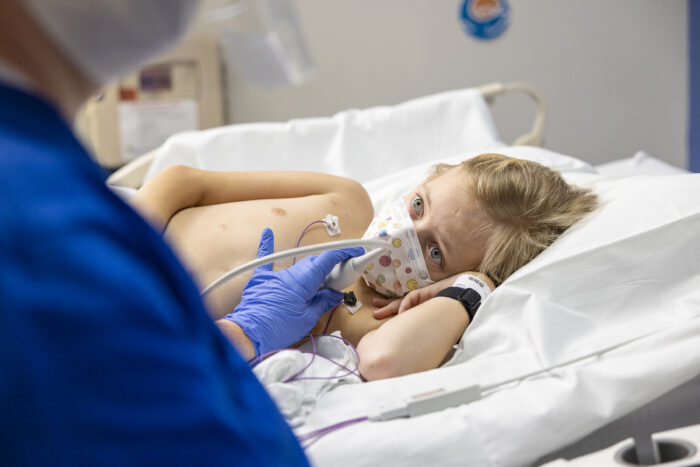
Hudson’s providers, Dr. Yuk Law, Medical Director, Cardiac Transplant/Heart Failure Service, and Dr. Friedland-Little, Medical Director, Mechanical Circulatory Support, identified the best long-term option for Hudson was a heart transplant. Unfortunately, his body wasn’t strong enough to survive surgery yet, so they recommended a ventricular assist device (VAD) be surgically implanted.
A VAD is a mechanical pump that a surgeon connects to a child’s heart. It can be implanted either inside or outside of the chest for children waiting for a heart transplant.
“They basically told us, ‘We need to do something or he’s not going to make it,’” explained Hudson’s dad, Travis Lewis.
The team advised Hudson’s parents that if he wasn’t able to recover from the VAD surgery, he might not qualify for a heart transplant, but Travis and KaLinda knew in their hearts what their son was capable of.
A multidisciplinary team approach was crucial to Hudson’s health. Dr. Friedland-Little not only consulted with the Neurology, Muscular Dystrophy and Pulmonology teams at Seattle Children’s, but also with other VAD experts in Europe and Cincinnati who had experience doing transplants on patients with muscular dystrophy.
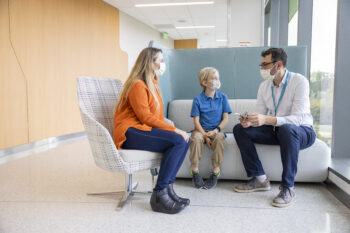
“My hope was that we would be able to use a VAD as a bridge to get a transplant,” Dr. Friedland-Little explained. “Diseases like Hudson’s are so rare; Seattle Children’s is fortunate to have connections with specialists around the world who have experience caring for patients like Hudson.”
Following the VAD surgery, Hudson grew strong enough for a transplant through the support of providers including physical therapists, neurologists, pulmonologists, nutritionists and therapeutic gaming specialists.
“There was a lot of medical stuff going on and Hudson was expressing a lot of discomfort, explained Forest Coyle, Hudson’s Therapeutic Gaming Specialist. “Gaming was a big motivator and a distraction. One of Hudson’s goals was to tolerate sitting up in a chair for several hours a day. Video games motivated him to sit up so he could play at a higher level.”
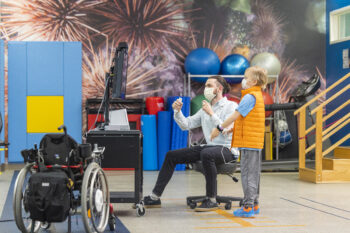
“Forest was truly an angel for Hudson,” Hudson’s dad Travis said. “We tried a lot of different therapies to manage Hudson’s pain and get him moving, and gaming therapy was the best thing he responded to.”
When Hudson was healthy enough to be discharged from the hospital, Stephanie Church, R.N., the VAD team coordinator, traveled to the family’s hometown, Eatonville, Wash., to teach Hudson’s teachers and extended family how to manage his heart pump.
Three weeks later, Stephanie shared the exciting news: Hudson was listed for a heart transplant. Within the month, Seattle Children’s cardiology team found a donor heart for Hudson. The transplant surgery was successful and Hudson recovered quickly, leaving the hospital just 14 days after.
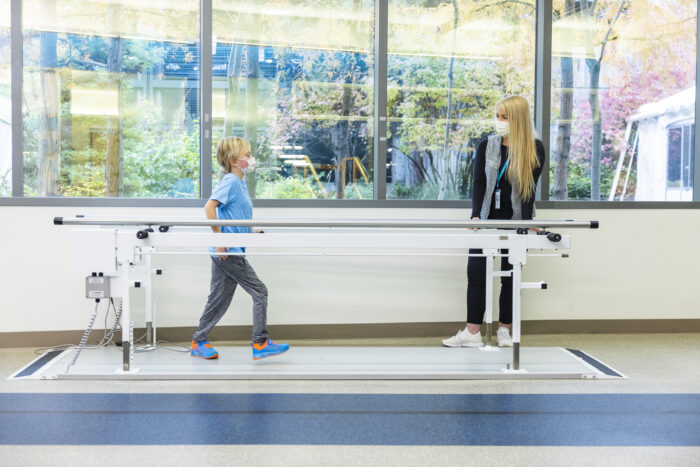
“Hudson did amazingly well, Dr. Friedland-Little said. “His quick recovery reflects his resilience and the diverse team of specialists who cared for him along the way.”
Hudson’s parents will always be thankful to his heart donor and their family.
“We get to celebrate Hudson’s new life and miraculous recovery,” they shared on the family’s fundraising page. “We will never forget their gift.”
Hudson hopes to become a YouTube gamer when he grows up. KaLinda and Travis are grateful to everyone at Seattle Children’s who have given him the chance to pursue that dream.
“They never gave up on him,” KaLinda said. “That’s why our son is alive today.”
For more than a decade, U.S. News & World Report has consistently ranked Seattle Children’s Heart Center among the top pediatric cardiology and heart surgery programs in the country. Our pediatric cardiac surgeons and interventional cardiologists have more advanced training and experience operating and performing procedures on babies, children and teens than at any other children’s hospital in the Pacific Northwest.
Learn more about Seattle Children’s Heart Center here: https://www.seattlechildrens.org/clinics/heart/
Resources:
- Meet Hudson – YouTube
- What is Muscular Dystrophy? | CDC
- Heart Failure | Seattle Children’s (seattlechildrens.org)
- Ventricular Assist Devices (VADs) | Seattle Children’s (seattlechildrens.org)
- Meet the Heart Center Team at Seattle Children’s (seattlechildrens.org)
- Heart Transplant Program | Seattle Children’s (seattlechildrens.org)
- Baby Flies Across the Globe for Lifesaving Heart Surgery 24 Hours After Birth – On the Pulse

